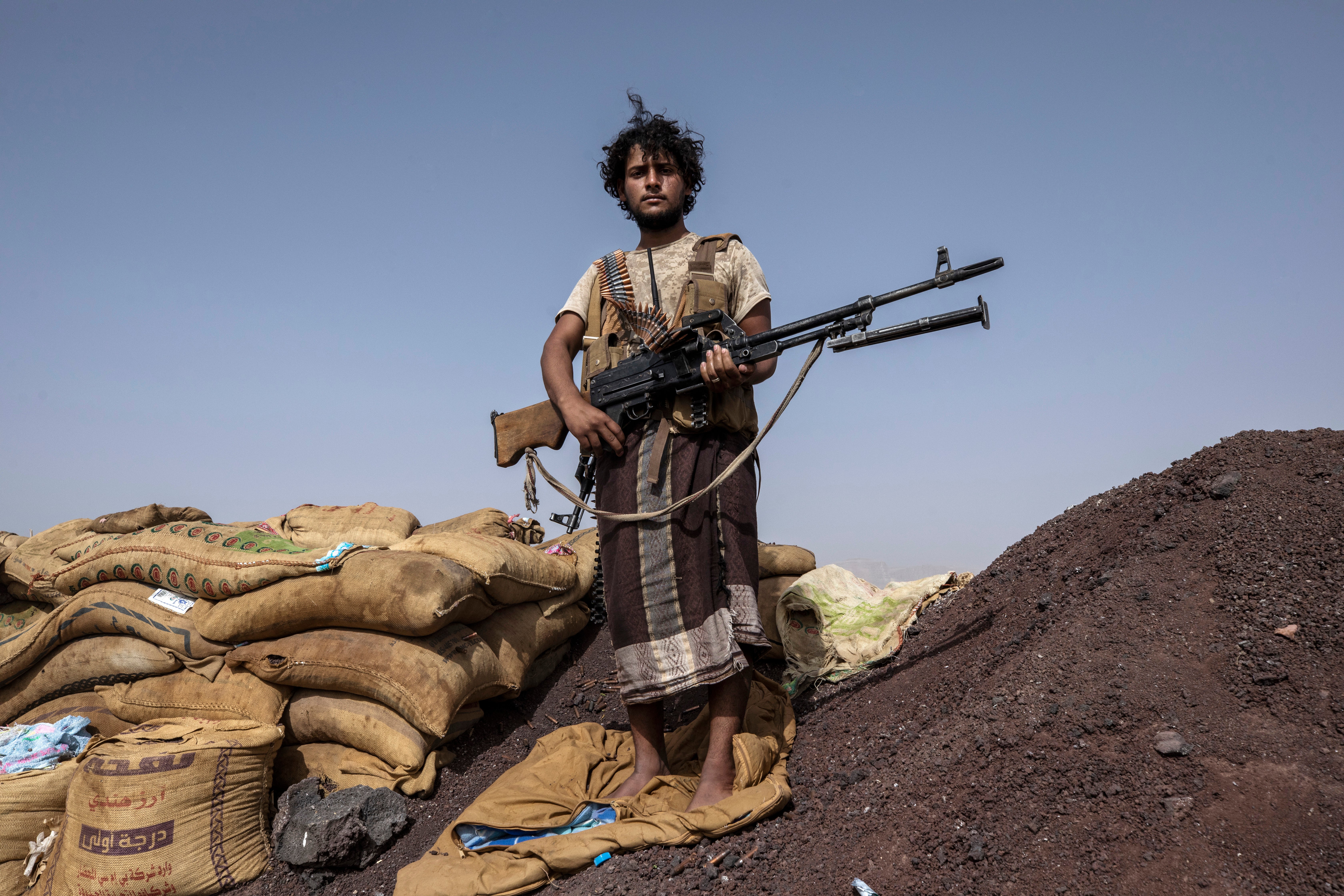Yemen has become a Vietnam-like quagmire for Saudi Arabia – with no simple solution to end the war
Riyadh desperately wants to put an end to the conflict, writes Borzou Daragahi, but on terms that are not humiliating to it and its Yemeni partners that make up the internationally recognised government


It was a vote that will go down in ignominy. Pressured by Saudi Arabia, the United Nations Human Rights Council voted on 7 October to end a four-year international mission to investigate war crime abuses by all parties in the Yemen conflict.
The vote amounted to a demonstration of the international community’s inability to hold those in the multilayered seven-year war accountable, much less bring an end to the conflict that shows no signs of winding down.
It means that there will be less information and global reaction when an airstrike by Saudi Arabia hits a wedding, or when a rocket launched by Iranian-backed Houthi rebels lands on a residential area.
Agnes Callamard, secretary-general of Amnesty International, warned that the vote would “signal a bitter abandonment – even betrayal – of the people of Yemen by the international community.”
But the vote – and Riyadh’s behind-the-scenes efforts to procure it – also showed the deep frustrations of the western and Saudi-backed coalition of armed forces battling the Iranian-backed Houthi forces controlling the capital, Sanaa.
Yemen has emerged as a Vietnam-like quagmire for Saudi Arabia. Riyadh desperately wants to put an end to the conflict, but on terms that are not humiliating to it and its Aden-based Yemeni partners that make up the internationally recognised government.
The problem for Riyadh is that the Houthis are winning the war, and are in no mood to offer up any concessions to the Saudis.
“Until about 2019, the balance of power was about a rough equilibrium with swings in either discretion,” says Peter Salisbury, Yemen researcher for Crisis Group, a Brussels and Washington-based conflict resolution advocacy organisation. “Since 2020 we’ve moved into a new phase where the Houthis have not won, but they are stronger than any rival party, and even winning.”
Though the Houthis hold more leverage, the Saudis have yet to update their bargaining position to reflect the new balance of power.
By removing a UN monitor on transgressions taking place in Saudi Arabia, Riyadh may hope it can take the proverbial kid gloves off and hit the Houthis from the skies without concern for international repercussions.
But it’s doubtful such a gambit would work. Regardless of how hard the Saudis have hit the Houthis, they have made slow grinding advances.
The Houthis in recent months have slowly won a series of territorial gains in Yemen which put them at a major strategic advantage toward Maarib, the last government-controlled bastion in northern Yemen. Control over Maarib would give the Houthis a major advantage, allowing them to direct all of their resources toward conquering Aden and the country’s south.
Salisbury warns that the international community may be sleepwalking into yet another disaster.
“No one’s going to understand that the Houthis are in Maarib until the Houthis are in Maarib,” he says.
As the war grinds on, Yemen’s 30 million people are facing increasing levels of despair and suffering. The UN has called the conflict the world’s worst humanitarian crisis, with millions on the edge of hunger. A currency crisis is destroying the population’s purchasing power and causing poverty to increase. Fuel, food and water are all imported and prices are rocketing astronomically. The persistence of armed groups that include the southern separatists, tribal militias, al-Qaeda and Isis remnants adds to the violence and misery.
In one 72-hour period this month, 11 people were killed in the conflict including three children. “Almost every day we hear of children and families caught up in the fighting,” says Xavier Joubert, Yemen director for Save the Children. “Yemen’s children risk death or injury by venturing outside and get caught up in the frequent shelling and bombing of places where they should feel safe – homes, schools, hospitals, and marketplaces.”
More than 112,000 people have died in the Yemen conflict including at least 12,000 civilians, according to the Armed Conflict Location and Event Data Project.
US Special Envoy for Yemen Tim Lenderking is now visiting friendly capitals in the Middle East. In a press release, the State Department mirrored many of the Saudi talking points, blaming the currency crisis on “Houthi price manipulation and stockpiling” and decrying the Houthis for “exacerbating the humanitarian crisis, killing civilians, and defying the international consensus.”
The Houthis, or Ansar Allah as they are formally called, are an authoritarian Islamic fundamentalist group with a dreadful track record on treatment of women, minorities and dissidents. But there are also whispers among policymakers in western capitals that perhaps they should goad Saudi Arabia into unilaterally pulling out of Yemen and letting the Houthis win the war, if only to allow for some measure of stability and alleviation of human suffering.
Even that may be no solution. In a number of ways, Yemen has become worse than Vietnam or Afghanistan. It’s a war right on the border of the world’s top oil-producing hub, and the Houthis regularly launch attacks on the Saudi mainland with increasingly sophisticated drone technology presumably supplied by Iran. And unlike Vietnam or Afghanistan, there is no single force that will take over the state after withdrawal as the North Vietnamese did in 1975 or the Taliban did this year. One Yemen expert recently described a fragmented nation of “seven Yemens” each under the sway of different authorities.
“In Yemen, the state collapsed seven years ago; there’s no central node to collapse,” says Salisbury. “Even if the Saudis pulled out, there are still other armed groups. The war will just continue.”






Join our commenting forum
Join thought-provoking conversations, follow other Independent readers and see their replies
Comments